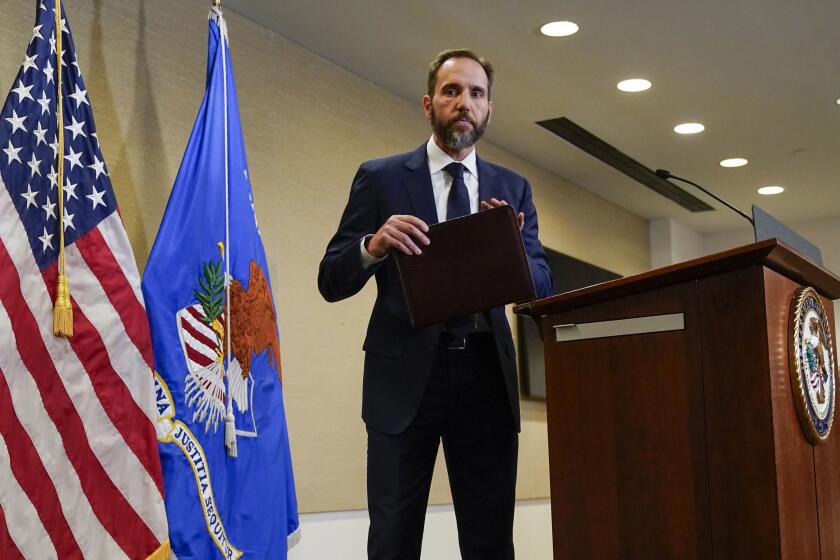Letters to the Editor: We rely on incarcerated firefighters. That highlights our hypocrisy on public safety

- Share via
To the editor: Your article on the incarcerated firefighters battling L.A.’s wildfires highlights a deeper crisis of misplaced priorities in California.
While it’s heartening to see the public rally to support these brave individuals, we must confront an uncomfortable truth: When 30% of our state’s firefighting force consists of imprisoned individuals, we’re relying on exploited prison labor to battle a climate emergency for which we are woefully unprepared.
These fires expose how California’s obsession with punishment over prevention has left us vulnerable. According to the state Legislative Analyst’s Office, we spend about $133,000 annually to incarcerate one person, yet we can’t properly resource our fire departments or invest in climate resilience.
In November, when voters rejected Proposition 6 to end involuntary servitude in prisons, they endorsed a system that exploits incarcerated firefighters who put their lives on the line with minimal compensation and no workers’ rights.
As these fires rage, let’s remember: Prevention and preparation save more lives than punishment ever will. California needs to fundamentally shift its priorities from reactionary responses that exploit the incarcerated to proactive investments that truly protect our communities.
George Galvis, Oakland
The writer is executive director of Communities United for Restorative Youth Justice.
..
To the editor: In our gratitude to the thousands of firefighters who are working to contain these wildfires, one group of firefighters has not received the recognition it deserves — the inmates of California prisons who are locally trained and experienced.
They do work that is just as important as other firefighters, but it is almost impossible for them to be hired by local fire departments once they leave prison because they have criminal records. That’s absurd.
Having a job to return to reduces recidivism by giving inmates the dignity of valuable work, a respected place in the community and a regular paycheck. In this case, it even reduces the cost of training new firefighters.
There must be a way to hire these experienced firefighters. How can Los Angeles and other cities take advantage of this opportunity to increase their fire department staff more easily and at less cost than usual?
Maria Simpson, Los Angeles








